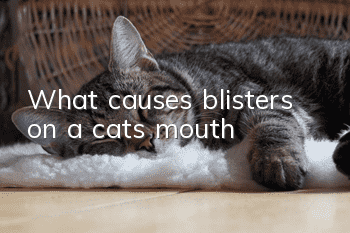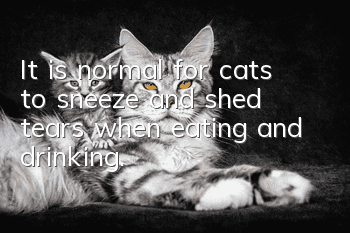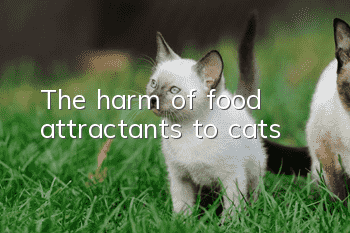What causes blisters on a cat’s mouth?

The blistering on the cat's mouth may be caused by internal heat, or it may be caused by oral ulcers, calicivirus infection, etc. If this situation is not treated in time, it may become more and more serious and affect the cat's appetite. Therefore, it is recommended that the owner take the cat to the pet hospital for examination in time as soon as it is discovered, and then treat it symptomatically according to the examination results to avoid delaying the condition. .
1. Getting angry
If your cat usually eats dry food and drinks less water, it will easily get angry and cause blistering on the mouth. At the same time, it may also have a dry nose, red eyes, and changes in the color of its urine. Symptoms such as yellow and dry stools. In this regard, it is recommended that owners appropriately reduce the amount of high-protein food they feed to their cats, and can help their cats reduce their fire by feeding them appropriate amounts of fruits and vegetables, increasing their drinking water, and other methods. If the dietary conditioning effect is not good, it is recommended to feed some heat-clearing and internal heat-removing drugs.
2. Oral ulcers
When a cat suffers from oral ulcers, there will be some blisters on the mouth skin or gums, which is a symptom of ulcers. At the same time, there will also be long-term sticky saliva, not liking to eat, gums, etc. Symptoms include redness, swelling, and pain in the mouth. It is recommended that the owner carefully examines the cat and if it is found that the cat has symptoms of oral ulcers, it is necessary to take the cat to the pet hospital for a professional oral examination to confirm the condition.
3. Calicivirus
After cats are infected with calicivirus, they may develop symptoms such as sneezing, coughing, decreased appetite, blistering at the corners of the mouth, and oral ulcers. This situation is quite serious. It is recommended that the owner take the cat to the pet hospital for a nucleic acid test for calicivirus. If there is calicivirus infection, it is necessary to treat the ulcer symptomatically and give the cat interferon. Can inhibit virus replication.
- Cat Ear Bacterial Infection Symptoms and Treatment
- What to do if a cat doesn’t eat cat grass
- Why doesn't a cat urinate in the litter box?
- Can pet cats drink tap water?
- When does the molting period of Ragdoll cats end?
- What do kittens eat to make them fat?
- What should I do if my cat doesn’t want to defecate in the litter box?
- Do British Shorthair cats shed hair?
- Why can't I fight Cat Mingchun?
- What should I do if my cat pees everywhere at home?



